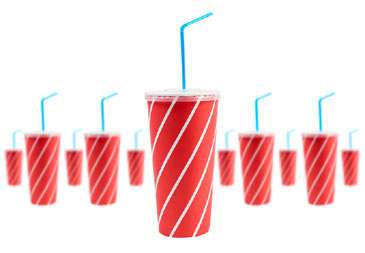Sickly Sweet: The Truth Behind High-Fructose Corn Syrup

In this article, you will find:
Why and how to avoid HFCS
What Do We Know for Sure?
In an interview for CBS News, Margot G. Wootan, director of Nutritional Policy at the Center for Science in the Public Interest said that the tagline for HFCS should be, "It's just as bad as regular sugar." What people need to be concerned about, she says, is the consumption of huge amounts of sugar, in any form. But because it's so ubiquitous, it's difficult to avoid consuming HFCS.
According to a commentary in the April 2004 issue of the American Journal of Clinical Nutrition, the consumption of HFCS increased over 1,000 percent between 1970 and 1990. The authors state that HFCS represents more than 40 percent of caloric sweeteners added to foods and beverages, and is the sole caloric sweetener in the most popular soft drinks in the United States. As Americans consume large quantities of HFCS in the form of soft drinks, their waistlines expand in direct proportion to the size and number of soft drinks they consume. Nutritional studies performed at the Harvard School of Public Health conclude that individuals who drink more than one sweetened beverage per day substantially increase their risk of gaining weight and developing diabetes.
"It is not uncommon for teenagers to receive 500 to 1,000 calories per day from sugar-sweetened drinks," says David Ludwig, Director of the Optimal Weight for Life Program at Children's Hospital Boston. "These drinks may be easy to over-consume, because calories in liquid form seem to be less satiating, or less filling, than calories in solid form." (Children's Hospital news release)
How to Avoid HFCS
The only way to know whether a product contains HFCS is to read the label. If high-fructose corn syrup is listed first or is high on the list of ingredients, don't eat or drink it. Don't buy highly processed foods – the more you stick to fresh whole foods, the less HFCS you will consume.
Try to eliminate soft drinks from your family's diet; drink more water instead. Buy 100% fruit juice instead of fruit-flavored drinks – even better, choose fresh fruit over fruit juices. And if you buy canned fruit, make sure that it has been canned in its own juices rather than heavy syrup.

